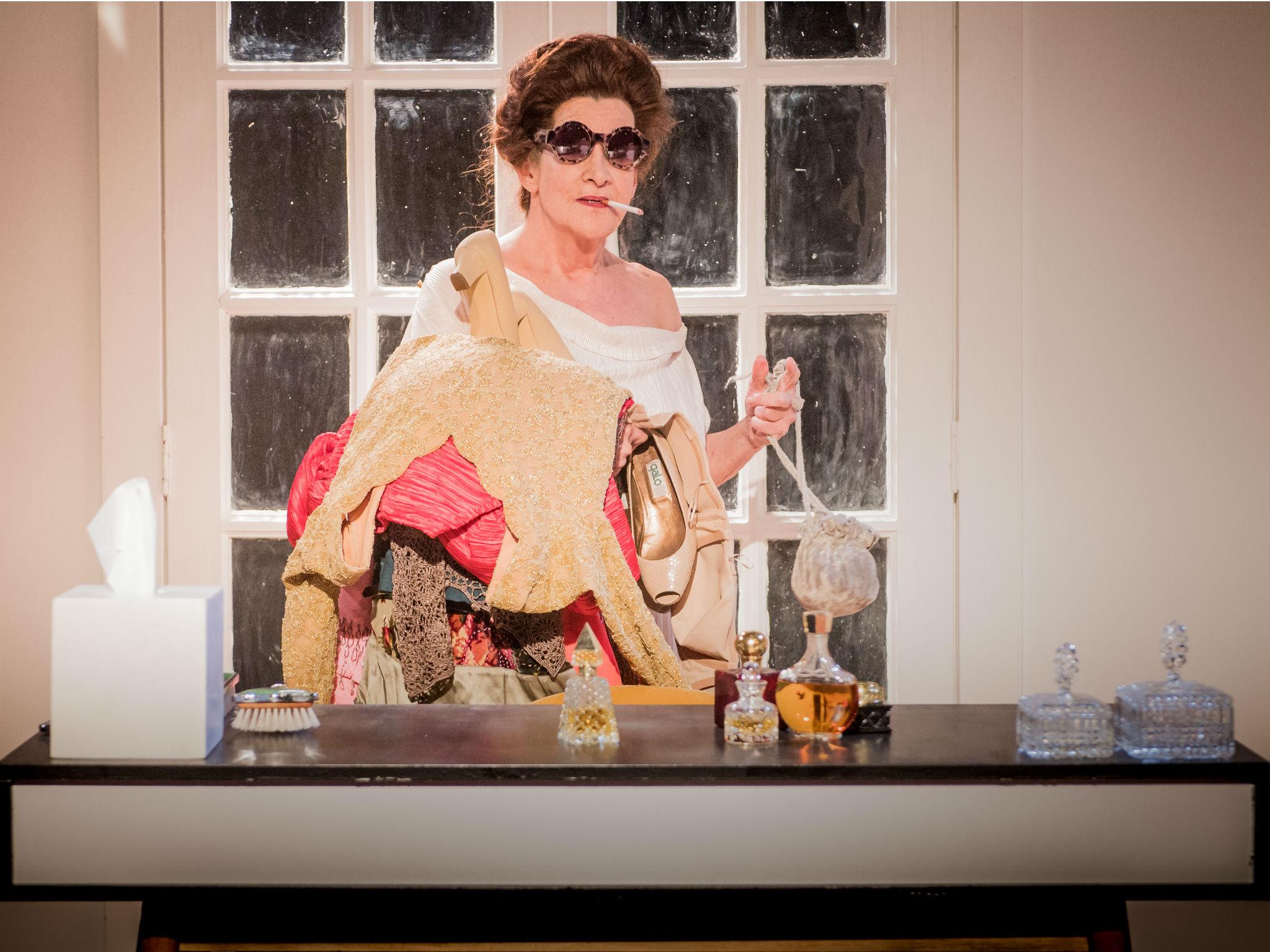Woman Before a Glass, Jermyn Street Theatre, London, review: Judy Rosenblatt captures the shafts of loneliness and pathos beautifully
This one-woman show about the great art collector Peggy Guggenheim, who loved art and sex in about equal measure, is part of Jermyn Street Theatre's Scandal season

“I’m always fascinated by men in baggy trousers,” declares Peggy Guggenheim, “The mystery of it all. Who really needs them and who simply thinks he does.” Jermyn Street Theatre kicks off its Scandal season with Lanie Robertson’s enjoyable one-woman show about the great art collector who was also a doyenne of indiscretion.
Guggenheim loved art and sex in about equal measure and saw no reason to hide the fact. Samuel Beckett was a lover; Max Ernst was one of her husbands; Jackson Pollock one of the many artists she championed, along with Kandinsky, Brancusi, Picasso and so on. If there had been a Nobel Prize for name-dropping, she would have been a shoo-in. One artist she offered to sleep with told her that “going to bed with me would be like screwing WC Fields” (she was conscious of her bulbous nose). “‘Really?’ I said. ‘How is it you’d know?’”
Judy Rosenblatt’s excellent performance drips with that kind of attitude – ballsy, bolshie, a woman ahead of her time (she was born in 1898) in expecting to do things on own her terms. But this monologue creates a mixed mood. It catches up with Guggenheim at her palazzo in Venice in the 1960s when she is becoming preoccupied with what will happen to her collection when she’s gone.
The show, directed with skilful shading by Austin Pendleton, could equally feature in a season about legacy. It’s her paintings and statuary that she dotingly calls her “children”; her relationship with her flesh-and-blood offspring is troubled. Either it is dismissive (“The only thing Sinbad can draw is his monthly cheque,” she says of her son) or suffocating (she’s desperate to promote her depressive daughter Pegeen as a great painter).
So there are tremors of insecurity under the glinting raunchiness in Rosenblatt’s performance. The set may come across as a bit sparse but the portrayal is impressively layered. When Guggeheim was 13, her father was drowned on the Titanic and she powerfully evokes the hush of dread expectancy as people waited in New York harbour to see if their loved ones were on the Carpathia, the rescue ship. She buys a work of art a day in 1940 to save the pieces from destruction by the approaching Nazis and is then affronted to be told in America, to where she smuggled them, that modern art can only be liked by Jews. The Louvre had already refused to protect her collection.
Guggenheim recounts such formative experiences in a seamless flow with her upmarket tittle-tattle and priceless bitchery. In each of the four sections, Robertson has her poised precariously in relation to her legacy. As she waits to welcome the president of Italy to a party in the first act – leafing through her old (very well reproduced) designer frocks as she does so – she says, “Balenciaga! Balenciaga was crazy for toreadors”, but he never touched them, she helpfully adds, just placed them around his house like statues. In the third act, she juggles phone calls from the curator of the Tate and emergency phone messages about Pegeen. She’s incredulous that the Tate curator has never heard her daughter, after she had that show at the State Museum of Finland.
I kept being reminded of Yeats’s poem where he berates himself for having given too much to art: “Players and painted stage took all my love/And not those things that they were emblems of.” Rosenblatt captures the shafts of loneliness and pathos beautifully. Worth collecting.
Until 3 February (jermynstreettheatre.co.uk)
Subscribe to Independent Premium to bookmark this article
Want to bookmark your favourite articles and stories to read or reference later? Start your Independent Premium subscription today.

Join our commenting forum
Join thought-provoking conversations, follow other Independent readers and see their replies